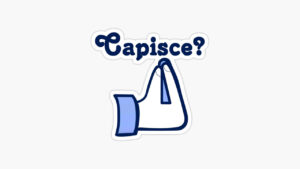The intersection of intellectual property (IP) and the burgeoning field of Web3 is a complex and evolving landscape. One of the recent developments in this space involves Matter Labs and their efforts around the trademarking of ‘ZK’, a term commonly associated with zero-knowledge proofs, a privacy-preserving cryptographic method. This move has sparked a significant debate within the Web3 community regarding the implications of IP licensing and trademarking in an ecosystem that values decentralization and open-source principles.
Matter Labs, known for their development of the zkSync protocol, filed to claim “zero-knowledge” as a trademark in nine countries, which led to public outcry from other projects working on zero-knowledge-based solutions. The contention lies in the fact that zero-knowledge proofs are not a new concept and have been a part of cryptographic discussions since the 1980s. The technology saw its first real-world application with the launch of the Zcoin and Zcash protocols in 2016, which utilized zero-knowledge proofs to enhance transaction privacy on the blockchain.
The trademark bid by Matter Labs raises questions about the ownership and commercialization of terms and technologies that many believe should remain in the public domain. The Web3 ethos often leans towards collaborative development and shared advancements, with many projects releasing their code under open-source licenses to foster innovation and collective growth.
Tekedia Mini-MBA edition 14 (June 3 – Sept 2, 2024) begins registrations; get massive discounts with early registration here.
Tekedia AI in Business Masterclass opens registrations here.
Join Tekedia Capital Syndicate and invest in Africa’s finest startups here.
In response to Matter Labs’ trademark filing, a joint statement from Starkware, Polygon, and Polyhedra—three teams also working on zero-knowledge solutions—called for the Web3 community to demand the withdrawal of these trademarks. They argue that zero-knowledge proofs should be considered a public good, belonging to everyone, and not subject to corporate ownership.
On the flip side, the case of HYPERCOMIC illustrates a different approach to IP in Web3. HYPERCOMIC, a consortium involving Korea’s leading webtoons and Netflix production units, announced a strategic collaboration with Matter Labs to leverage zkSync’s blockchain technology. Their goal is to create a decentralized IP ecosystem that incentivizes and rewards fans for interacting with and supporting HYPERCOMIC’s IPs. This model aims to revolutionize how users engage with IP content, allowing fans to play an active role in the growth and direction of IPs, while also earning rewards for their contributions.
The HYPERCOMIC initiative highlights the potential for Web3 technologies to create novel IP management and monetization models that benefit creators and consumers alike. It presents a contrast to the traditional centralized control of IP growth by distributors and offers a community-driven approach to supporting and developing content.

The debate around Matter Labs’ ‘ZK’ trademark bid and the contrasting models of IP management in Web3 underscores the need for a nuanced understanding of IP rights in the digital age. As the Web3 space continues to evolve, it will be crucial for the community to navigate these issues carefully, balancing the protection of innovations with the ethos of openness and accessibility that many associate with the decentralized web.
The ongoing discussions and actions taken by various stakeholders in the Web3 community will likely shape the future of IP licensing and trademarking in this new digital frontier. It remains to be seen how these tensions will resolve and what precedents will be set for future innovations in the space. For now, the Matter Labs ‘ZK’ trademark controversy serves as a pivotal case study in the complex interplay between IP rights and the principles of Web3.
Credit: Source link




